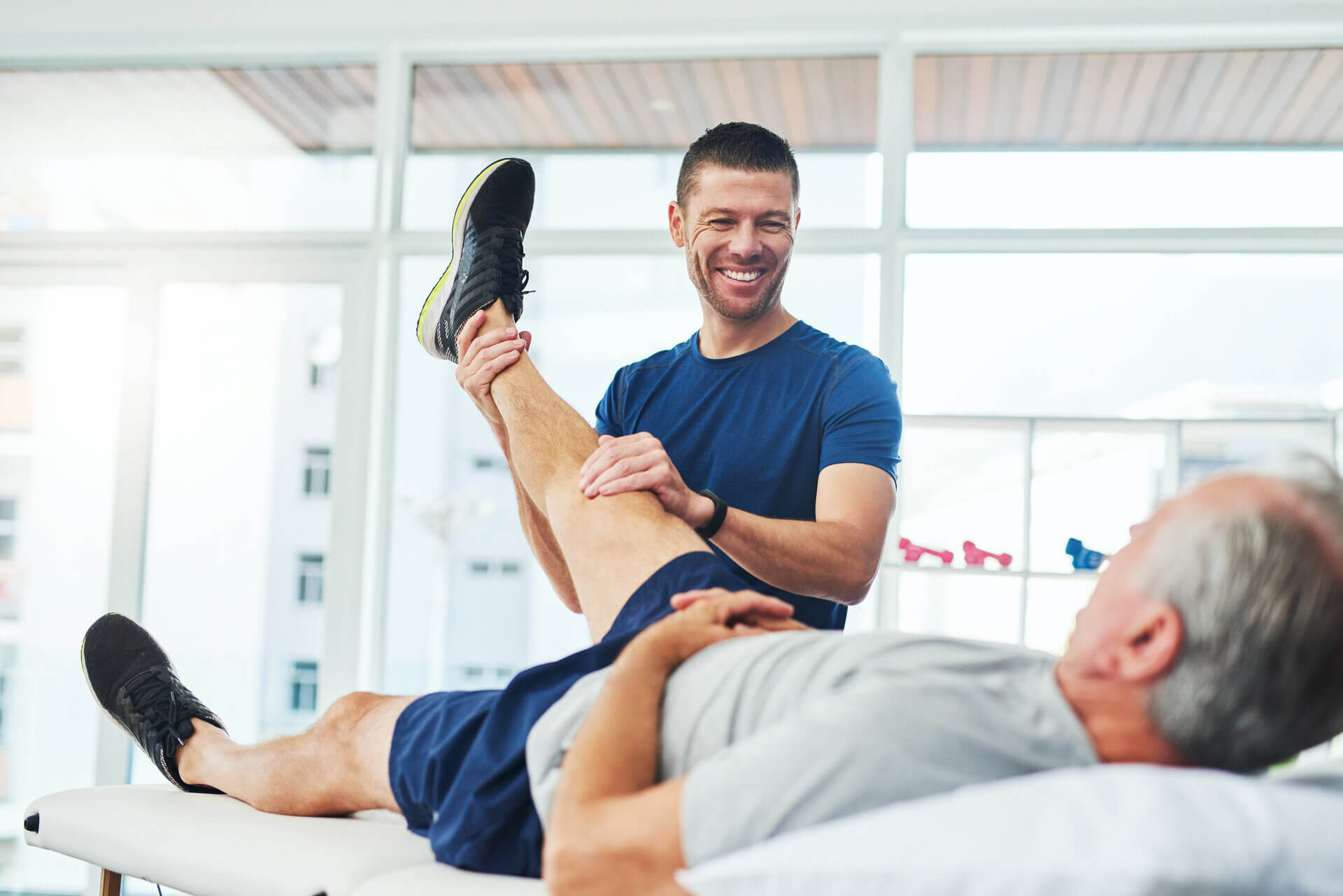What is GLA:D?
GLA:D (Good Life with osteoArthritis: Denmark) is an exercise and education program developed by researchers in Denmark for people with hip or knee osteoarthritis.
The education and exercises provided in GLA:D are designed to be applied to everyday activities, with the aim of participants developing the skills to self-manage their osteoarthritis.
By strengthening and improving confidence with exercise, participants develop better capacity to become or stay active, prevent progression of their symptoms and reduce pain.
Why do the GLA:D program?
GLA:D has been shown to help people with mild, moderate and severe osteoarthritis by reducing pain, increasing mobility and enhancing quality of life.
Research conducted by GLA:D Australia and Denmark show participants who completed the program experienced an average pain reduction of 36%, as well as reduced use of pain killers, meaningful improvement in joint confidence, reduction in perceived need for surgery.
Often joint replacement surgery can be avoided, and in cases where surgery goes ahead, recovery is improved in those who completed the GLA:D program.
What does the program involve?
There are 12 supervised exercise sessions over 6 weeks, and 2 education sessions.
Each session – education and exercise – will take about 60 minutes.
These sessions are run by physiotherapists who have been trained by GLA:D Australia.
The GLA:D exercises are a set of 10 exercises, plus warm-up and cool-down, aimed at improving the strength and function of the hips and knees.
These exercises are designed to be able to be completed at home as well as in clinic.
Sessions are run in small groups of up to six people.
In each session, the same exercises are done by each person at the level appropriate for them.
The physiotherapists who run GLA:D work with each individual to tailor the exercises to suit them according to their capacity and symptom levels.
When completing new exercise, it’s normal and acceptable to have mild pain during and after the session for up to 24 hours, occasionally this may last longer at first.
The physiotherapist running the session assists in monitoring pain and symptoms pain so that the exercises remain challenging without making pain worse in the long run.
The GLA:D education sessions are an opportunity for the physiotherapist to tell you about the latest research evidence and for you to ask questions and discuss it with the physiotherapist and other participants.
GLA:D Australia also collects research data from participants. This data is de-identified so that it can’t be used to identify participants.
Participants are asked to complete a questionnaires with information about their health and experiences with osteoarthritis at the start of the program, then at 3 months and again at 12 months.
The physiotherapist will also undertake some physical tests to record progress.
The GLA:D Australia team uses this information to help improve access to the best possible care for those with osteoarthritis
GLA:D at Lifecare
Lifecare runs GLA:D programs at a majority of our clinics.
All of our GLA:D classes are run by GLA:D trained and certified physiotherapists with specialist experience in treating knee and hip osteoarthritis.
More information about the GLA:D program, including class times and costs can be found by contacting your closest Lifecare clinic, our team would love to help you with any enquiries.

